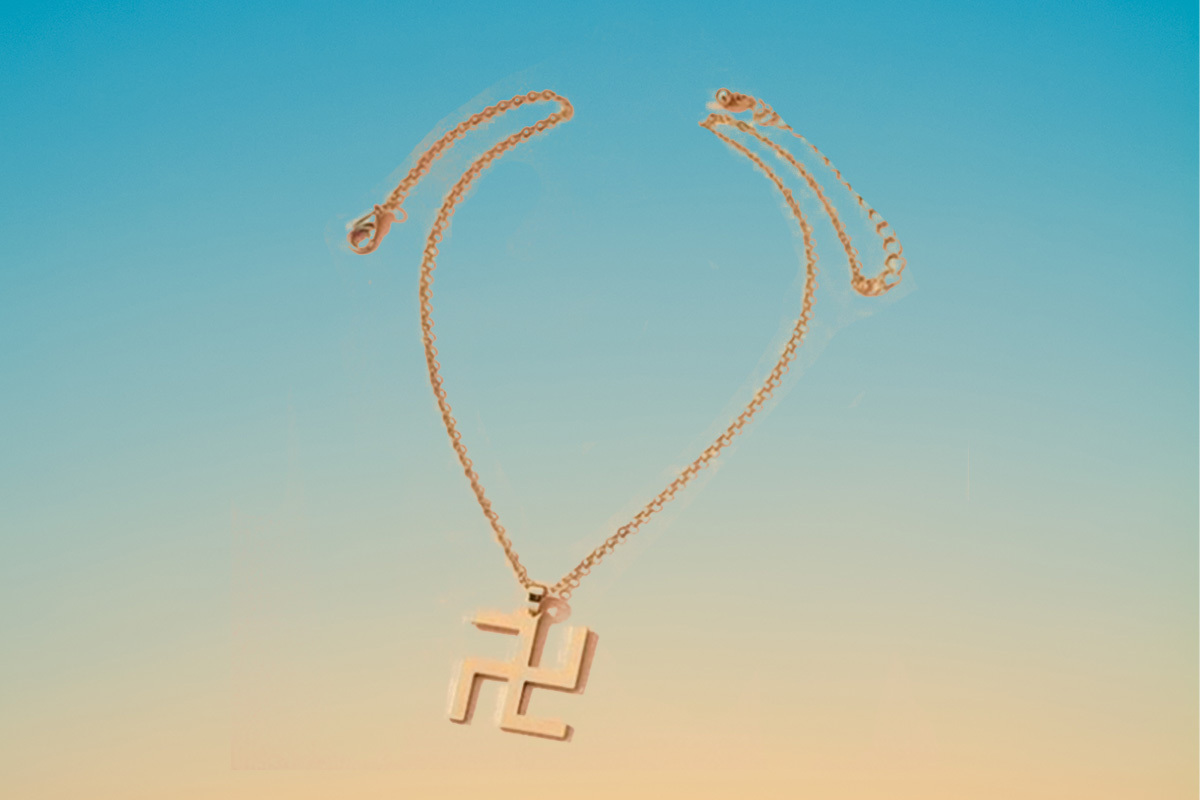Popular fast fashion brand Shein is, once again, under fire.
On Thursday, the online retailer, famous for “try on hauls” on YouTube, faced backlash for selling a “swastika pendant necklace” for $2.50. An Instagram account that spills the tea on drama in the digital sphere — @hereforthetea2 — shared a screenshot of the product listing with their 110K followers.
https://www.instagram.com/p/CCbXMfYAIbw/
The outrage quickly spread across the internet, causing Shein to take down the necklace and issue a statement to the New York Post:
“For the record, Shein was not selling a Nazi swastika pendant, the necklace is a Buddhist swastika which has symbolized spirituality and good fortune for more than a thousand years. The Nazi swastika has a different design, it is pointed clockwise and tilted at an angle. However, because we understand the two symbols can be confused and one is highly offensive, we have removed the product from our site.” The rep added, “We want to apologize profusely to those who are offended, we are sensitive to these issues and want to be very clear that we in no way support or condone racial, cultural and religious prejudice or hostility.”
Let’s break this down.
What’s a Buddhist swastika?
Before Hitler’s Germany irreversibly linked the swastika to anti-Semitism, the swastika symbolized the footprints of the Buddha.
In Buddhism, the swastika is the opposite of a symbol for hatred and represents the dharma wheel, or the wheel of law, which is the path to attaining enlightenment and nirvana.
That doesn’t seem so bad then, right? Well…
So how did the swastika become a Nazi symbol?
When Hitler smacked the swastika on Nazi Germany’s national flag in 1935, he coopted a symbol for peace and kinda ruined it for everyone else. In his book Mein Kampf, Hitler described the evil meaning behind the “hooked-cross” (hakenkreus):
“The swastika signified the mission allotted to us-the struggle for the victory of Aryan mankind and at the same time the triumph of the ideal of creative work.”
Uh, the creative work of being a douchebag? Never forget the two public propaganda exhibits the Third Reich opened smeared art and music made by Jews and Black people as “degenerate.”
Anyway, even though Hitler’s swastika is slightly different from the Buddhist swastika, the Nazis irreversibly stained a religious sign of peace with their Aryan theologies. It incites so much hatred and horrific memories that swastikas are banned in countries like Israel, Germany, Austria, France, Lithuania, Latvia, Poland, Ukraine, and Brazil, where it’s considered a criminal offense if displayed under non-educational purposes (notice the United States is not on this list…).
So is it wrong to shop at Shein?
If we take them for their word and assume Shein, a China-based company, didn’t intend to sell anti-Semitic jewelry, is it still kosher to patronize their business? Should the fast fashion brand be “canceled” for their ignorance, or do we allow them room for growth?
Enraged by the Shein shande, fashion blogger Nabela contacted the company’s Head of Brand for a productive conversation to navigate these murky waters. It’s true that, clouded by the Holocaust, many people aren’t familiar with the myriad original meanings of the swastika in different cultures. Shein told Nabela that the swastika was supposed to be symbolic of prayer and love, but that wasn’t written in the product description.
“The lack of clarity is irresponsible and insensitive,” Nabela told her 1.3 million followers in an IGTV video. “We cannot erase the cultures and religions that we’re trying to represent in the products that we’re selling because that’s when it becomes an issue and appropriation.”
“How can consumers know that their cultures and religions are being appreciated when there are no mentions of their culture or religion and their correct terminology within the product name and description?” Nabela told Shein’s Head of Brand.
Allowing space for growth is imperative to fostering a better world, and of course it’s up to individual shoppers to decide where they want their money going. But this isn’t the first time Shein fucked up, and that’s just in the past two weeks…
The Muslim prayer mats scandal
Just last week, Shein was rightfully attacked for selling Muslim prayer mats (janemaz/sajahda) as “fringe trim carpets.” Worshippers use these religious mats during their five daily prayers, and it’s highly disrespectful to market them as a casual home decoration printed with the Kaaba mosque, the most sacred site in Islam.
After backlash, Shein took down the “fringe trim carpets,” asked their vendor to stop selling them to other businesses, and issued this statement:
“To our community — we made a serious mistake recently by selling prayer mats as decorative rugs on our site. We understand this was a highly offensive oversight and are truly sorry… As a global brand, we vow to do a much better job in educating ourselves on different cultures, religions, and traditions to ensure our diverse community is respected and honored. We offer our sincerest apology to all whom we have hurt and offered, and hope we can earn your forgiveness.”
Fool me once, shame on me. Fool me twice, shame on you, Shein.
Image of necklace via Shein



